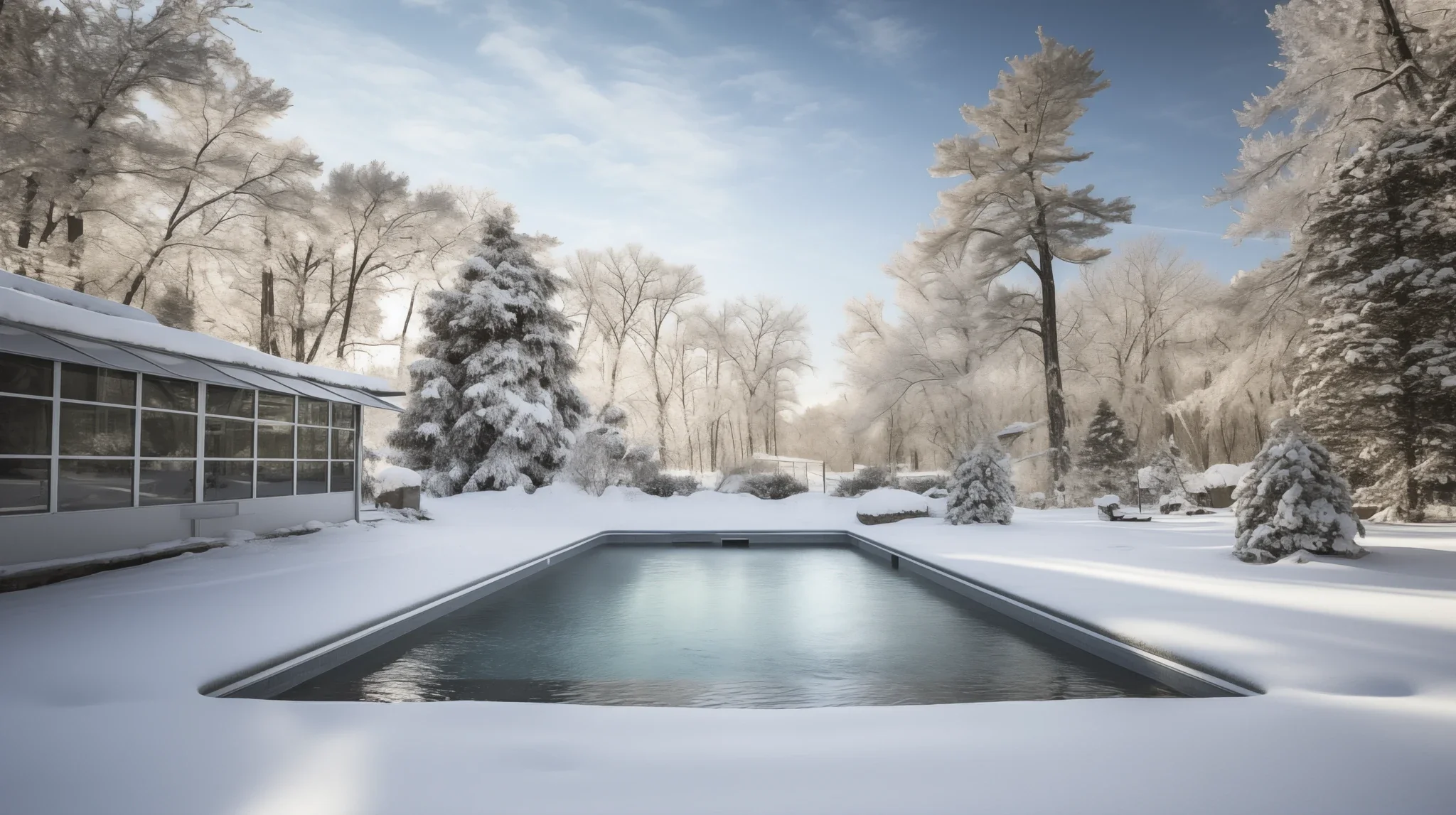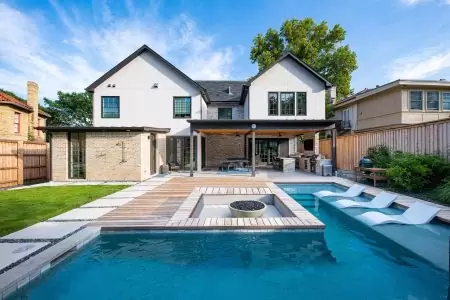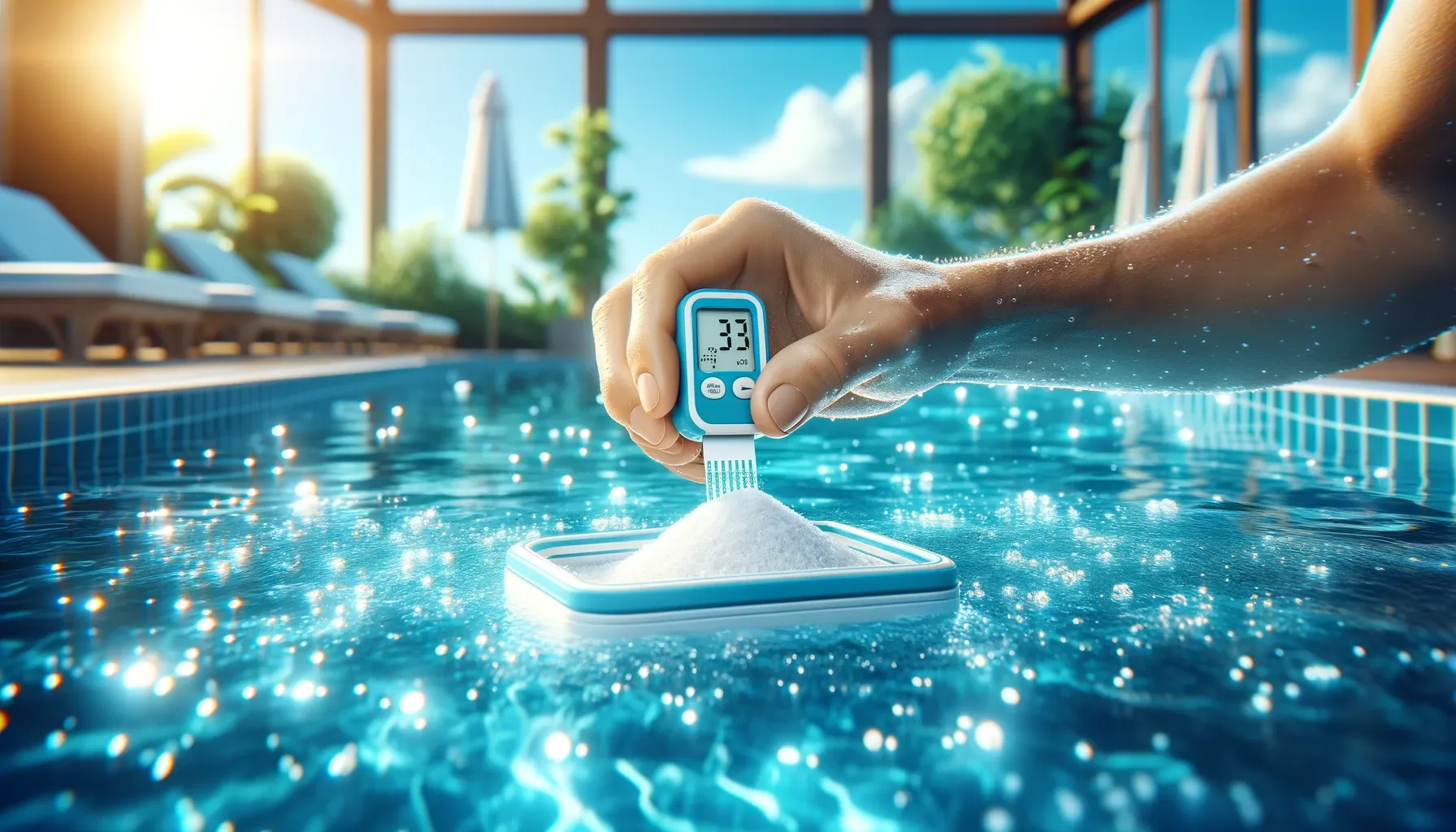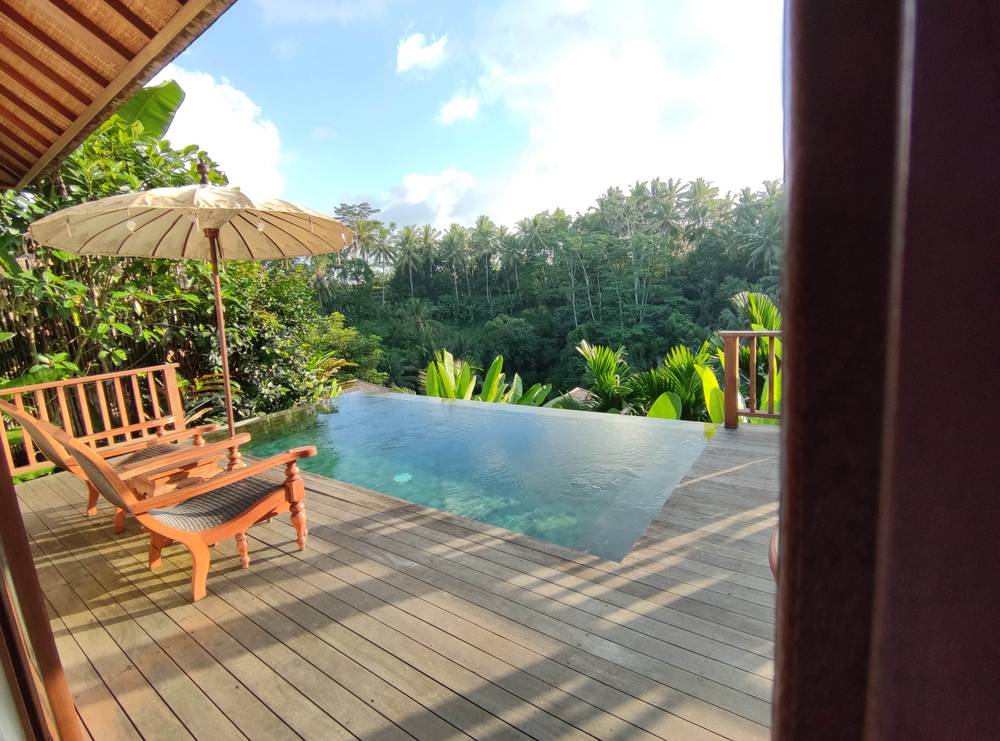
Pool Construction Requirements in Virginia: An In-Depth Guide

The thrill of having your swimming pool right in your backyard is second to none. Not only does it provide a fun and relaxing space for you and your family, but it can also significantly enhance your property’s aesthetic appeal and value. However, if you’re located in Virginia, it’s crucial to understand that pool construction is complex. It involves adhering to many requirements and regulations governed by the Virginia Uniform Statewide Building Code.
In Virginia, the regulations extend beyond just the construction phase, with stringent safety measures and barrier requirements to ensure the well-being of pool users. Furthermore, securing the necessary permits and passing required inspections are vital aspects of the process that homeowners must navigate successfully. Comprehending and abiding by these requirements can be daunting for anyone who needs to be well-versed in the legalities and technicalities of swimming pool construction.
Understanding the depth and breadth of these requirements before embarking on your pool construction journey is a matter of compliance and a testament to your commitment to safety, quality, and excellence. Ensuring a professional, compliant, and hassle-free pool construction process is a mark of a responsible and conscientious homeowner. These qualities resonate deeply with our commitment as a premier pool construction company in Virginia.
We will guide you through the labyrinth of swimming pool requirements in Virginia, from permits and documentation to safety measures and inspections, enabling you to embark on your pool construction project equipped with valuable knowledge and insights. Let’s dive in and explore the requirements for building your dream pool.
Latest


How Do You Know If Your Pool Needs Salt?

What Will Influence Infinity Swimming Pool 2024 Prices
Categories
Swimming Pool Permit Requirements
Embarking on a swimming pool construction project in Virginia requires obtaining the necessary building permits. The Virginia Uniform Statewide Building Code stipulates that a building permit is required for any swimming pool that exceeds 150 square feet in surface area, contains more than 5,000 gallons of water, or measures 24 inches or more in-depth. Importantly, this mandate applies uniformly to all types of pools, be they in-ground, above-ground, or inflatable, as well as hot tubs and spas.
The permit acquisition process, while straightforward, demands careful attention and coordination. To commence the process, it’s advisable to verify if your homeowner’s association allows the construction of a pool in your community. With this confirmation, the following steps involve assembling and submitting the necessary documents and paying the requisite fees.
For your permit application, the authorities require three essential documents. These include a completed Agreement instead of a Plan that serves as your plot plan, two complete sets of pool construction drawings that can be engineered and sealed by RDP or follow the Manufacturer’s installation guide, and a Pool and Fence Statement combined with a Building Review Form.
The responsibility of applying for the permit is essential, as the holder bears the ultimate duty to ensure compliance with the code. For in-ground pools, it’s generally recommended that the licensed pool contractor apply for the permit, although homeowners are permitted to do so. The homeowner typically takes on this task in the case of above-ground pools unless a contractor has been hired. Regardless, all homeowners applying for these permits must familiarize themselves with the code requirements.
The permit cost is subject to annual changes and can be ascertained by visiting the official website or contacting the Building Safety Department. Once the application is submitted and the fees are paid, a waiting period of typically two weeks or less precedes the building permit issuance. Meeting these permit requirements is the starting point in your journey to building a swimming pool.
Swimming Pool Permit Requirements
Embarking on a swimming pool construction project in Virginia requires obtaining the necessary building permits. The Virginia Uniform Statewide Building Code stipulates that a building permit is required for any swimming pool that exceeds 150 square feet in surface area, contains more than 5,000 gallons of water, or measures 24 inches or more in-depth. Importantly, this mandate applies uniformly to all types of pools, be they in-ground, above-ground, or inflatable, as well as hot tubs and spas.
The permit acquisition process, while straightforward, demands careful attention and coordination. To commence the process, it’s advisable to verify if your homeowner’s association allows the construction of a pool in your community. With this confirmation, the following steps involve assembling and submitting the necessary documents and paying the requisite fees.
For your permit application, the authorities require three essential documents. These include a completed Agreement instead of a Plan that serves as your plot plan, two complete sets of pool construction drawings that can be engineered and sealed by RDP or follow the Manufacturer’s installation guide, and a Pool and Fence Statement combined with a Building Review Form.
The responsibility of applying for the permit is essential, as the holder bears the ultimate duty to ensure compliance with the code. For in-ground pools, it’s generally recommended that the licensed pool contractor apply for the permit, although homeowners are permitted to do so. The homeowner typically takes on this task in the case of above-ground pools unless a contractor has been hired. Regardless, all homeowners applying for these permits must familiarize themselves with the code requirements.
The permit cost is subject to annual changes and can be ascertained by visiting the official website or contacting the Building Safety Department. Once the application is submitted and the fees are paid, a waiting period of typically two weeks or less precedes the building permit issuance. Meeting these permit requirements is the starting point in your journey to building a swimming pool.
Barrier Requirements for Swimming Pools
In Virginia, the emphasis on safety within the pool environment must be balanced, necessitating barriers around outdoor swimming pools. The barriers provide protection and play a critical role in preventing accidents, especially for children.
Conforming to the code specifications, a compliant barrier for an outdoor swimming pool needs to be a minimum of 48 inches in height above grade, measured from the outside face of the barrier. For above-ground pools, the side of the pool may suffice as a barrier, provided it stands at least 48 inches tall. Alternatively, the barrier can be installed atop the pool structure. In both cases, the ladder must be removable when not in use or accompanied by a gate meeting the stated requirements.
The maximum opening size for a barrier should be at most 2 inches between the grade and the bottom of the barrier. When a barrier is attached to the top of an above-ground pool wall, a 4-inch gap is permissible between the top and bottom of the wall. All other openings should not allow the passage of a 4-inch diameter sphere. A powered safety cover, compliant with ASTM-1346, can be employed as an alternative to a fence-style barrier.
The barrier should exhibit anti-climb properties. Solid barriers should not have any protrusions or indentations. If horizontal members are less than 45 inches apart, they must be situated on the inside face of the barrier, with the space between corresponding vertical members no more significant than 1.75 inches.
Access gates also need to adhere to height, opening, and climbability requirements. They should be self-closing and self-latching and must open outward away from the pool. For safety reasons, latches located less than 54 inches from the bottom of the gate should be placed on the pool side at least 3 inches from the top of the gate.
In instances where the house forms part of the barrier, door or window alarms are mandatory. These alarms should immediately emit a sound for at least 30 seconds, audible throughout the house, reset automatically, and be temporarily but not permanently deactivable. All alarms must comply with UL2017.
Special Provisions for Spas and Hot Tubs
Special provisions exist for spas and hot tubs, emphasizing the importance of safety measures in these relaxing water facilities. While safety measures for spas and hot tubs align with those for swimming pools, some particularities are worth mentioning.
Spas and hot tubs may sometimes differ from traditional swimming pools in design and usage. However, these differences do not compromise the need for safety but highlight the need for tailored safety protocols. In particular, safety covers may be employed as substitutes for barriers, provided these covers meet the ASTM F1346 standard.
The ASTM F1346 standard outlines the performance specifications for safety covers and label requirements to aid consumers in choosing suitable protective measures for their spas and hot tubs. A compliant safety cover effectively restricts access to the water facility when not in use and significantly reduces the risk of accidents.
Entrapment Protection Requirements for Pools
In the sphere of swimming pool safety in Virginia, an area often overlooked but of critical importance is the potential hazard posed by pool circulation systems. These systems, integral to the pool’s functioning, can unwittingly become sources of danger if not suitably safeguarded.
The essence of a pool’s circulation system is to keep the water clean and fresh. However, the same approach may inadvertently create a hazardous situation for swimmers, leading to what’s known as entrapment. Entrapment occurs when a swimmer becomes stuck in a pool’s suction outlet and cannot free themselves, leading to severe injuries or even fatalities.
Virginia adheres to stringent entrapment protection requirements to prevent such unfortunate incidents as defined by ANSI/APSP – 7 – 06. This standard outlines specifications for suction fittings used in swimming pools, wading pools, spas, and hot tubs to reduce the risk of entrapment.
In essence, swimming pools must be equipped with devices or systems that mitigate the risk of suction entrapment. These may include anti-entrapment grates, safety vacuum-release systems, suction-limiting vent systems, or automatic pump shut-off systems.
Electrical Requirements for Swimming Pools
The significance of electrical safety in swimming pools can’t be understated. Water and electricity create a potentially hazardous combination. Therefore, careful and professional handling of electrical installations is a must to prevent accidental electrocution or any other electrical mishap.
The Virginia Code offers a comprehensive set of rules regarding pool electrical installations. These regulations pertain to every aspect, from wiring specifications, breaker requirements, and junction box placements to light structures, grounding, and bonding procedures.
It is of utmost importance that all electrical installations comply with these specifications to ensure the safety of those using the pool. But due to the complex nature of these requirements and the potential dangers of incorrect installation, a licensed electrical contractor is strongly encouraged to undertake these tasks.
By engaging professional services, pool owners can rest assured that all electrical work associated with their pool adheres to the state’s strict safety standards. Not only will this guarantee a safer swimming environment, but it will also save owners from potential legal and financial repercussions of non-compliance. After all, when it comes to electrical safety, there is no room for mistakes.
Inspection Requirements
A thorough and meticulous inspection is the final critical step in Virginia’s swimming pool installation process. This step ensures that all the safety requirements and building codes have been meticulously adhered to during the construction.
Typically, several inspections are conducted throughout the pool installation process. The number and type of inspections required may vary based on the pool design and structure specifics. However, some of the standard inspections include the following:
- Footing Inspection (200): This initial inspection occurs before the concrete is poured for the pool. It verifies the footings’ correct placement and checks the pool shell’s reinforcement.
- Pool Steel & Bonding Inspection (630): This inspection verifies the correct installation of the steel reinforcements in the pool and checks the bonding of the electrical system to ensure safe operation.
- Electrical Pool Inspection (511): This inspection ensures that all electrical wiring and equipment connected to the pool meet the required safety standards.
- Rough-in Gas Inspection (402): If your pool has gas-operated features like heaters, this inspection is carried out to verify that the gas lines are installed correctly.
- Final Gas Inspection (420): This is the final check to ensure the safe and correct operation of the gas systems.
- Final Building/Barrier Inspection (991): The last inspection before the pool is approved for use verifies the pool’s completion, its barrier (either a fence or the pool wall for an above-ground pool), and the associated electrical equipment. The inspector checks that everything is built according to plan and that all safety standards have been met.
Conclusion
Building a swimming pool in your Virginia property is an exciting venture, but it’s paramount to ensure that you meticulously observe all the requirements and regulations. From the early stages of securing a permit to the final phases of the pool inspection, each step carries significant importance for your project’s overall safety and legality.
This article has shed light on permit requirements, documentation, barrier specifications, and inspection procedures that homeowners must remember before embarking on a pool construction project. These regulations, though detailed, are primarily in place to ensure the safety and enjoyment of everyone who will use the pool.
We have also highlighted the specific provisions for spas and hot tubs, the requirements for preventing dangerous entrapment situations in certain pool types, and the critical role of professional electrical installations for pool safety. Adherence to all these regulations not only prevents accidents but also ensures a delightful and safe swimming experience for all.
Remember, the ultimate responsibility of complying with these regulations lies with the homeowner. However, you can navigate these waters with others. Here at PoolForce, we are committed to helping you through every step of this process. Our team of licensed and experienced professionals is well-versed in all Virginia swimming pool regulations and can ensure that your pool construction process is smooth and compliant.
If you’re planning to bring the joy of a swimming pool, spa, or hot tub to your Virginia home, we hope this comprehensive guide has provided valuable insights into the requirements you’ll need to meet. Proper planning, professional help, and a clear understanding of the rules can make your dream of owning a swimming pool a safe and enjoyable reality.
At PoolForce, we are committed to turning your swimming pool dreams into reality. Contact us today for a free estimate, and let’s start building your perfect pool!
Latest

Are Fiberglass Pools Good for Cold Climates?

How Do You Know If Your Pool Needs Salt?

What Will Influence Infinity Swimming Pool 2024 Prices
Categories
YOU'RE NOT IN THIS ALONE
We are with you every splash of the way
Need a pool fix or looking for an upgrade? We’re just one click away to help with all your pool needs.

